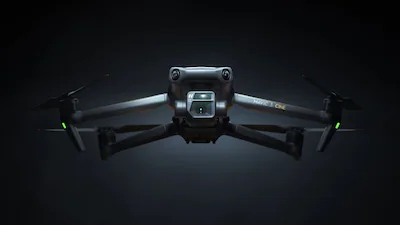 25Jun 2023
25Jun 2023- by stevenypd
In a surprising move, Governor Ron DeSantis of Florida recently issued an executive order banning the use of DJI drones throughout the state. The decision has sparked significant controversy and debate among drone enthusiasts, industry professionals, and the general public. This blog post aims to delve into the rationale behind Governor DeSantis’ ban on DJI drones, explore the potential implications, and shed light on the broader implications of such a decision.
The DJI Drone Ban
On April 5th 2023, Governor Ron DeSantis signed an executive order prohibiting the use of DJI drones by state agencies and local governments in Florida. DJI, a Chinese technology company, is one of the leading manufacturers of consumer and commercial drones worldwide. The ban effectively prevents any state-funded entity from purchasing or using DJI drones, citing concerns over data security and national security.
Rationale Behind the Decision
Governor DeSantis’ decision is primarily rooted in national security concerns and potential data privacy risks associated with Chinese-manufactured drones. The executive order claims that DJI drones may be collecting sensitive data, including images, audio, and location information, which could be accessed by the Chinese government. These concerns align with broader anxieties surrounding the use of Chinese technology in critical infrastructure and government operations.
It is worth noting that the ban specifically targets DJI drones, while not imposing a blanket ban on all drones or prohibiting the use of drones by private citizens. The focus appears to be on preventing the potential compromise of sensitive information held by government agencies and safeguarding national security interests.
Implications and Controversies
Governor DeSantis’ decision has sparked a heated debate among various stakeholders. Supporters argue that the ban is a necessary step to protect Florida’s interests and maintain data security. They claim that DJI’s close ties to the Chinese government present a significant risk, with potential implications for national defense and critical infrastructure.
Critics of the ban, on the other hand, question the evidence and necessity behind the decision. They argue that DJI drones have been widely used in various industries, including agriculture, filmmaking, and search-and-rescue operations, and that there have been no documented instances of data breaches or security threats caused by these drones.
Another point of contention is the potential economic impact. DJI is a major player in the drone industry, and the ban could have ramifications for businesses and individuals who rely on DJI drones for their operations. It may lead to increased costs for alternative drone options and disrupt existing workflows and investments.
Broader Implications
Governor DeSantis’ ban on DJI drones in Florida raises broader questions regarding the use of Chinese technology in critical infrastructure and government operations. It reflects a growing global concern about data security, national defense, and the potential risks associated with relying on foreign-made technology.
This decision could also prompt other states or countries to reevaluate their own drone procurement policies and consider imposing similar bans. It may encourage domestic drone manufacturers to step up their efforts to provide viable alternatives that prioritize security and data protection.
Conclusion
Governor Ron DeSantis’ ban on DJI drones in Florida has ignited a fierce debate surrounding data security, national defense, and the risks associated with Chinese-made technology. While proponents argue that the ban is a necessary precaution to protect sensitive information, critics question the necessity and potential economic impact. Ultimately, this decision serves as a reminder of the complex relationship between technology, data privacy, and national security, and highlights the ongoing challenges governments face in striking the right balance.
The ban on DJI drones imposed by Governor Ron DeSantis poses a significant danger for both the public and law enforcement agencies. DJI drones have been widely utilized in various sectors, including search-and-rescue operations and law enforcement surveillance. Prohibiting their use hampers the capabilities of these agencies, potentially compromising public safety and impeding their ability to respond effectively to emergencies and criminal activities.

During a Senate Committee meeting in March, several first responders explained the problems with Blue sUAS, and Florida DMS Secretary Pedro Allende was accused of pimping for US-based dronemaker Skydio by Senator Jason Pizzo (D-FL).
The Florida Senate Committee meeting lasted well over an hour. It highlighted the problems with the so-called Blue sUAS and Skydio’s aggressive lobbying against Chinese-made drones, specifically DJI drones. Read the full artical from DRONEXL



